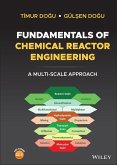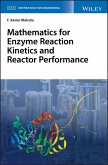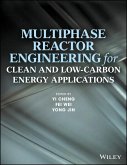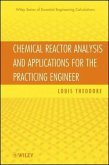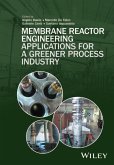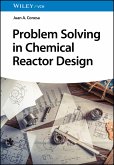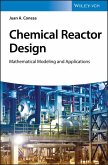The Second Edition features new problems that engage readers in contemporary reactor design Highly praised by instructors, students, and chemical engineers, Introduction to Chemical Engineering Kinetics & Reactor Design has been extensively revised and updated in this Second Edition. The text continues to offer a solid background in chemical reaction kinetics as well as in material and energy balances, preparing readers with the foundation necessary for success in the design of chemical reactors. Moreover, it reflects not only the basic engineering science, but also the mathematical tools used by today's engineers to solve problems associated with the design of chemical reactors. Introduction to Chemical Engineering Kinetics & Reactor Design enables readers to progressively build their knowledge and skills by applying the laws of conservation of mass and energy to increasingly more difficult challenges in reactor design. The first one-third of the text emphasizes general principles of chemical reaction kinetics, setting the stage for the subsequent treatment of reactors intended to carry out homogeneous reactions, heterogeneous catalytic reactions, and biochemical transformations. Topics include: * Thermodynamics of chemical reactions * Determination of reaction rate expressions * Elements of heterogeneous catalysis * Basic concepts in reactor design and ideal reactor models * Temperature and energy effects in chemical reactors * Basic and applied aspects of biochemical transformations and bioreactors About 70% of the problems in this Second Edition are new. These problems, frequently based on articles culled from the research literature, help readers develop a solid understanding of the material. Many of these new problems also offer readers opportunities to use current software applications such as Mathcad and MATLAB¯®. By enabling readers to progressively build and apply their knowledge, the Second Edition of Introduction to Chemical Engineering Kinetics & Reactor Design remains a premier text for students in chemical engineering and a valuable resource for practicing engineers.
Dieser Download kann aus rechtlichen Gründen nur mit Rechnungsadresse in A, B, BG, CY, CZ, D, DK, EW, E, FIN, F, GR, HR, H, IRL, I, LT, L, LR, M, NL, PL, P, R, S, SLO, SK ausgeliefert werden.



